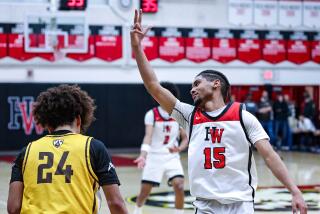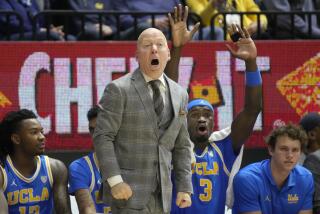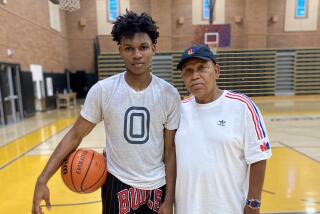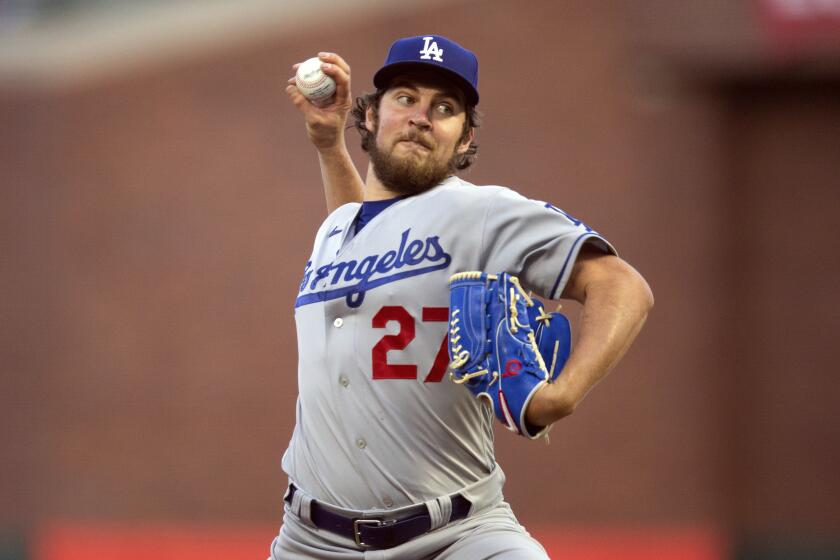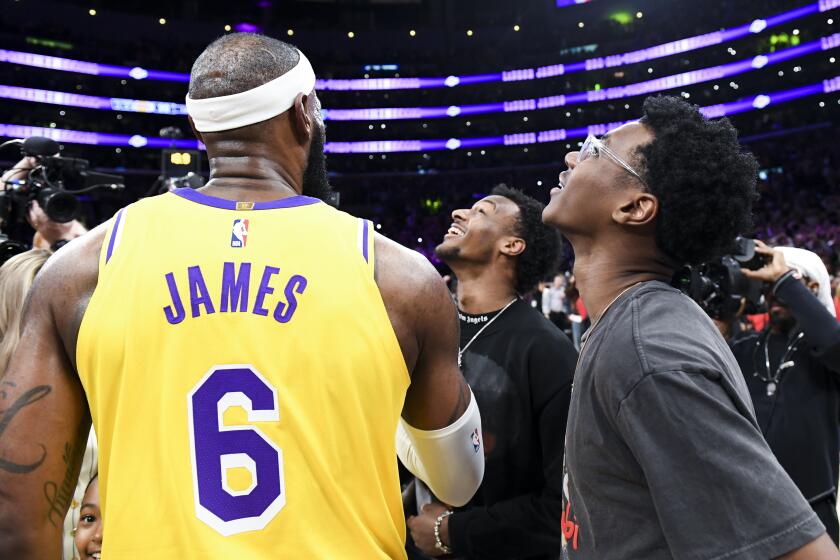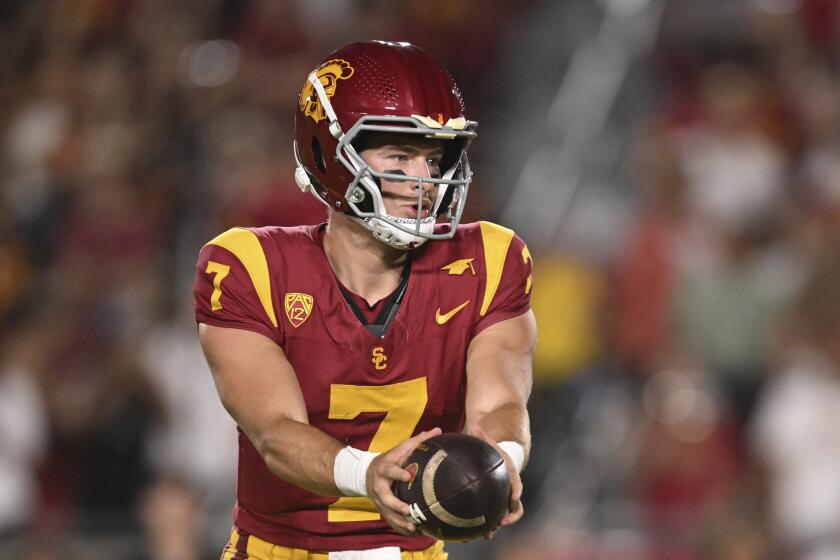Ron Holmes had recording of benefactor’s phone call to the NCAA
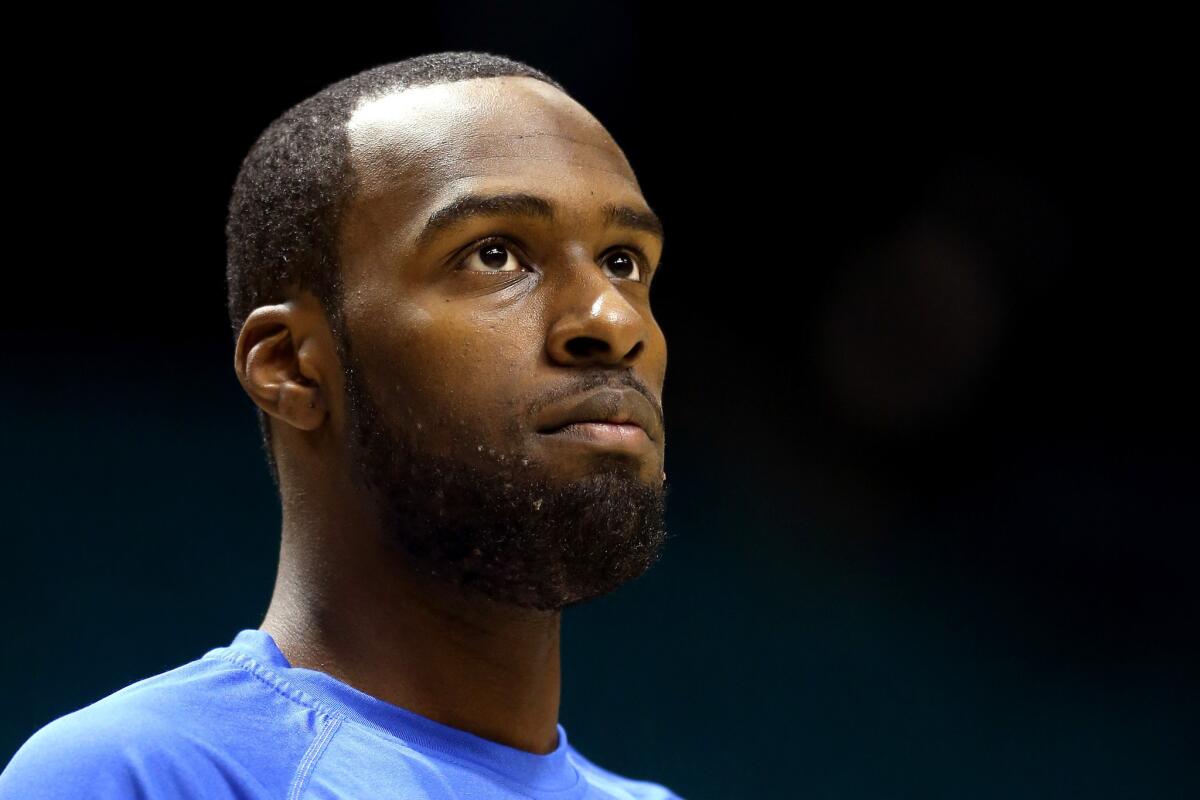
The father of UCLA basketball star Shabazz Muhammad took out what he called “a little protection” against NCAA investigators, guarding a recording of a phone call that a benefactor had made to the NCAA for more than two years.
Ron Holmes would never end up needing the recording, as his son was reinstated with the UCLA Bruins early in the season following an investigation into whether Muhammad received improper benefits.
With Muhammad leading the way, the Bruins recovered from a rough start to the season to win the Pac-12 regular-season title. Friday the Bruins’ postseason came to a quick halt with an 83-63 loss to Minnesota in the second round of the NCAA tournament.
IN DEPTH: Minting an NBA millionaire
Just getting to the tournament and to UCLA, though, has meant years of work for Holmes.
Visits to colleges campuses are an easy way to gain publicity for young recruits. Every time Muhammad set foot on campus — any campus — the basketball world took note. In all, Muhammad made more than 15 college visits.
“When you’re good enough, you don’t have to pay for your trips,” Holmes said.
Document: Shabazz Muhammad’s birth certificate
Funding for the trips came from an array of sources, including 34-year-old financial planner named Ben Lincoln.
Before Muhammad could take the court in college, however, there was a significant hurdle to clear.
In early 2011, NCAA investigator Abigail Grantstein had grown suspicious of the campus visits paid for by several people, including Lincoln. That December she contacted colleges recruiting Muhammad to alert them that the player may have violated amateurism rules and could lose his eligibility.
Then, on Nov. 9, 2012, hours before UCLA’s opener against Indiana State, the NCAA ruled Muhammad ineligible for accepting travel and lodging from Lincoln that it later valued at $1,600. That sidelined him indefinitely while the NCAA and the university negotiated an appropriate penalty.
Holmes was frustrated. He was also prepared.
Three months earlier, a Memphis lawyer happened to overhear a conversation on an airplane by a man professing to be Grantstein’s boyfriend. According to the lawyer’s account, the boyfriend boasted Grantstein was going to ensure that Muhammad would sit out the entire season.
Outraged, the lawyer wrote a letter to a former member of the NCAA infractions committee that went unanswered. She also sent a copy to Robert Orr, the lawyer representing Muhammad in the investigation, and to UCLA.
As the season began with his son on the sidelines, Holmes said he hatched a plan to leak the letter to the media.
If that failed, he said, he had a backup plan: For more than two years, he had been guarding a recording of a phone call that Lincoln had made to the NCAA. On the secretly taped call, an eligibility official seemed to approve Lincoln’s funding of trips to North Carolina.
Holmes considered the tape “a little protection” in case NCAA officials questioned the arrangement.
Just days after the NCAA’s ruling, the letter was passed to a sports writer at the Los Angeles Times. On Nov. 14, the newspaper published a story about the airplane conversation, with Orr quoted as saying that it “calls into question the impartiality” of the NCAA’s decision.
The sports world exploded with accusations that Shabazz had been unfairly judged. Two days later, the NCAA reinstated Muhammad, clearing him to play immediately after having missed three games.
The NCAA does not release documents from investigations. UCLA has refused requests to view the records. A UCLA spokesman declined requests for interviews with Coach Ben Howland and Muhammad.
In mid-December, the NCAA fired Grantstein. The association has not offered an explanation for the dismissal, and a spokeswoman declined to comment.
“She came at me,” Holmes said. “I did what I had to.”
ALSO:
UCLA vs. Minnesota: How they match up
UCLA: Follow the Bruins run for the NCAA championship
Shabazz Muhammad’s new age (20, not 19) could hurt draft status
ken.bensigner@latimes.com
matt.stevens@latimes.com
More to Read
Get our high school sports newsletter
Prep Rally is devoted to the SoCal high school sports experience, bringing you scores, stories and a behind-the-scenes look at what makes prep sports so popular.
You may occasionally receive promotional content from the Los Angeles Times.
